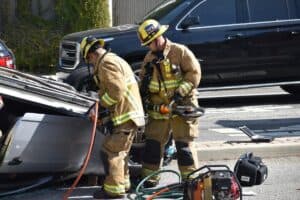
In a mere blink of an eye, a normal ride becomes a nightmare automobile collision. Clean-up is usually one of chaos, witness testimony that contradicts each other, and the harrowing issue of determining fault. That’s where dashcam video has been a lifesaver and has changed the face of auto collision lawsuits, at least in Kenya. Something less than a novelty gadget, a dashcam is an unbiased witness, documenting the undeniable proof of an accident and assisting in the delivery of justice.
The Objective Eye: Dispelling Guilt
Perhaps the most straightforward implication of dashcam evidence is to provide an objective, contemporaneous account of something having happened. Whereas human witnesses who are already certain about what they believe has occurred or are afraid for their lives may not be reliable, a dashcam captures what has occurred. That is gold dust when motorists give conflicting versions of how an accident has occurred. Whether one is trying to establish a driver ran a red light, cut in front of him, or was distracted, sharp video evidence can determine whether fault exists instantly, with little leeway for interpretation or months of disagreement. To Kenya’s insurance carriers and attorneys, clarity simplifies the claims process.
Prevention of False Claims
Regrettably, staged accidents and insurer scams are a frequent occurrence on the world’s roads, including Kenya. There are individuals who will simulate wrecks or fabricate injury to obtain false insurance claims. A dashcam is a good deterrent and protection from scams. In the event of dishonesty, the dashcam evidence will authenticate the act of dishonesty and protect innocent drivers from fraud and loss of cash. Such tangible proof allows the insurance firms to identify and deny false claims, thus protecting all the other policyholders as well with secure premiums.
Making Your Claim Irrefutable with Immaculate Proof
For anyone who has ever been involved in a car accident, impeccable proof is the success secret at court. Dashcam evidence provides that. It can record vital details such as road condition, traffic signals, speeds of the vehicles, and even the scene post-a collision. Such accurate recording also confirms police and witness reports, which certainly gives more power to your evidence. In Kenyan courts, with increased favor for electronic evidence in the Evidence Act, unadulterated and direct recordings through dashcams can be an elixir to evidence of negligence and just compensation.
Accelerating Insurance Claims and Settlement
Without sheer evidence, insurance firms have been conducting longer investigations and negotiations that most often occur and lead to delay and lower offers of settlement. But with definitive dashcam proof, the insurance firm will be ready to pay a reasonable amount and settle claims in advance. The argument is cut out by the video because it correctly pins down the culprit, reducing the haggle typically involved in filing accident claims. Victims of accidents are offered quicker access to cash for car repair, medical bills, and other damages so that a hassle-causing process is less stressful.
Legal Admissibility and Fact Management
As great as dashcam evidence is, the same can only be permitted in insurance claims and courts under certain circumstances. In order for it to be admitted into Kenyan courts of evidence, it generally must be relevant, genuine, and tamper-proof. Courts generally demand evidence that the recording device functioned at its optimal capacity and that the recording was tamper-proof. It is advisable that the original tape be preserved soon after the accident, making copies in a few safe locations so that it could not be accidentally erased or overwritten. Having an attorney’s guidance early is also a way to ensure the tape is played correctly and at the appropriate time to be of maximum benefit for your case.
Final Thoughts
By consequence, dashcam images are no longer a sole preserve but a tool for saving lives for drivers and attorneys. By taking an honest, objective record of car crashes along roads, not only is the question of fault determined easily but protection against fraudsters, proofing cases, and accelerating the road to justice in motor accidents in Kenya is also facilitated.